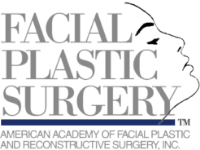The 2018 Plastic Surgery Statistics Report from the American Society of Plastic Surgeons recorded a total of 213,780 rhinoplasty procedures for the year, most of which were performed on patients between the ages of 20 and 39. What makes this procedure, the name of which literally means “changing the shape of the nose,” so popular?
Common Reasons for Rhinoplasty Surgery
Rhinoplasty can be either cosmetic or reconstructive.
Patients seek reconstructive surgery to:
- Correct congenital defects
- Correct nose after previous trauma to the face
Cosmetic rhinoplasty changes the shape of the nose to the patient’s liking. For example, it’s common for people to ask for a less prominent or bulbous tip, more rotation to the tip, or a reduced dorsal hump.
The Basics of Rhinoplasty
What can you expect if you undergo rhinoplasty surgery?
Cosmetic procedures involve reshaping the nose to give it a new structure and appearance. The surgeon may use grafts made of your natural cartilage or soft tissue to achieve the desired nose size and shape. It’s generally believed that natural cartilage is preferable to artificial implants for the safest long term results.
Rhinoplasty Recovery
Patients may experience minor bruising and swelling around the nose and eyes following rhinoplasty. Keeping the head elevated helps reduce this inflammation. The splint and dressing placed on the nose after surgery are generally removed in a week, and patients can return to work after one week.
Many patients notice that the nose appears wide for some time after the surgery. This type of swelling along with contraction of the skin is normal and expected after a rhinoplasty procedure, and may last for months and even up to a year.
It’s important to adhere to all post-surgical instructions for best results. Stay in close contact with your surgeon during the recovery process so measures can be taken to improve the healing process if necessary.
Whether for health or cosmetic reasons, rhinoplasty remains the most popular type of facial plastic surgery. If you’re considering the procedure, discuss your reasons with a qualified surgeon, like Dr. Bared, to find out if it’s the best choice for your situation.











